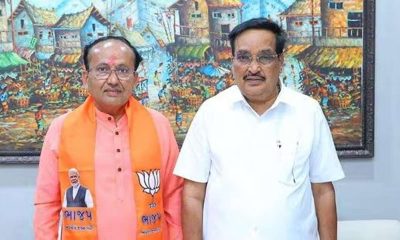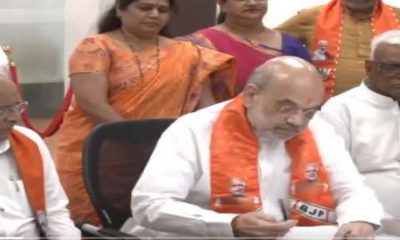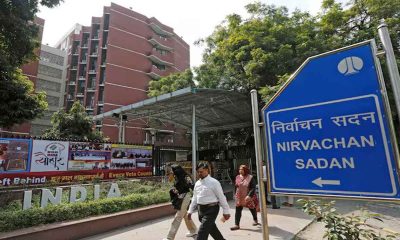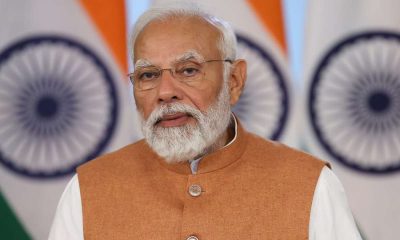India News
Mumbai remains tense, Police denies permission for students’ meet

Jignesh Mevani and Umar Khalid were to address
Amidst violence and disruption in public life, Mumbai witnessed another angry anti government mass students’ protest on Thursday when police abruptly refused permission for a convention to be addressed by newly elected Dalit MLA from Gujarat Jignesh Mevani and JNU student leader Umar Khalid.
According to a Mumbai police spokesperson, permission has been denied for the Chhatra Bharati’s All India National Students Summit scheduled in Mithibai college auditorium Vile Parle. He refused to give the reason for denying the permission.
The students meet was scheduled much earlier. But the prevailing situation seems to be the reason of denying permission for the students’ summit. The Bhima Koregaon violence between the Dalits and high caste people in Pune has already affected the lives of millions of people in the state.
Official sources said that the refusal for the left-oriented student body meet came in the wake of prohibitory orders imposed in Mumbai and other parts of Maharashtra after Wednesday’s shutdown, in retaliation to the alleged attack on Dalits commemorating 200th anniversary of 1818 war in Bhima Koregaon on December 31. Jignesh Mevani and Khalid Umar had attended that event.
Opposing the police move, Chhatra Bharati members attempted to squat outside the Bhaidas Hall (venue) and many were seen running on the main road outside. Dozens of the students were detained and taken away from the frowd.
Chhatra Bharati Vice President Sagar Bhalerao said that the daylong event was planned long ago in which both Mevani, Khalid and other prominent personalities were invited to speak.
The organizers of the students summit have accused police of acting at the behest of the ruling BJP -Shiv Sena government in the state “to crush the voice of the students” .
Meanwhile, The Pune police has registered an FIR against Jignesh Mevani and JNU student leader Umar Khalid under charges of promoting enmity between the two groups. They are alleged for delivering provocative speeches in Pune on December 31.
Bhima Koregaon event was addressed by Mevani, Khalid and Dalit leaders Prakash Ambedkar and Radhika Vemula. It was in commemoration gathering on the occasion of bicentenary of the Bhima-Koregaon 1818 battle in which 500 soldiers of the Mahar community fought alongside the English to defeat the forces of Peshwa Bajirao II. However, the clashes between the two groups marred the celebrations.
According to the local media in Maharashtra, the names of Milind Ekbote (60), the head of ‘Samasta Hindu Aghadi’, and 85-year-old Sambhaji Bhide ‘Guruji’, the head of ‘Shiv Pratisthan’ have surfaced in connection with orchestrating the violence.
India News
Salman Khan house firing case: NIA interrogates arrested shooters Sagar Pal, Vicky Gupta for three hours
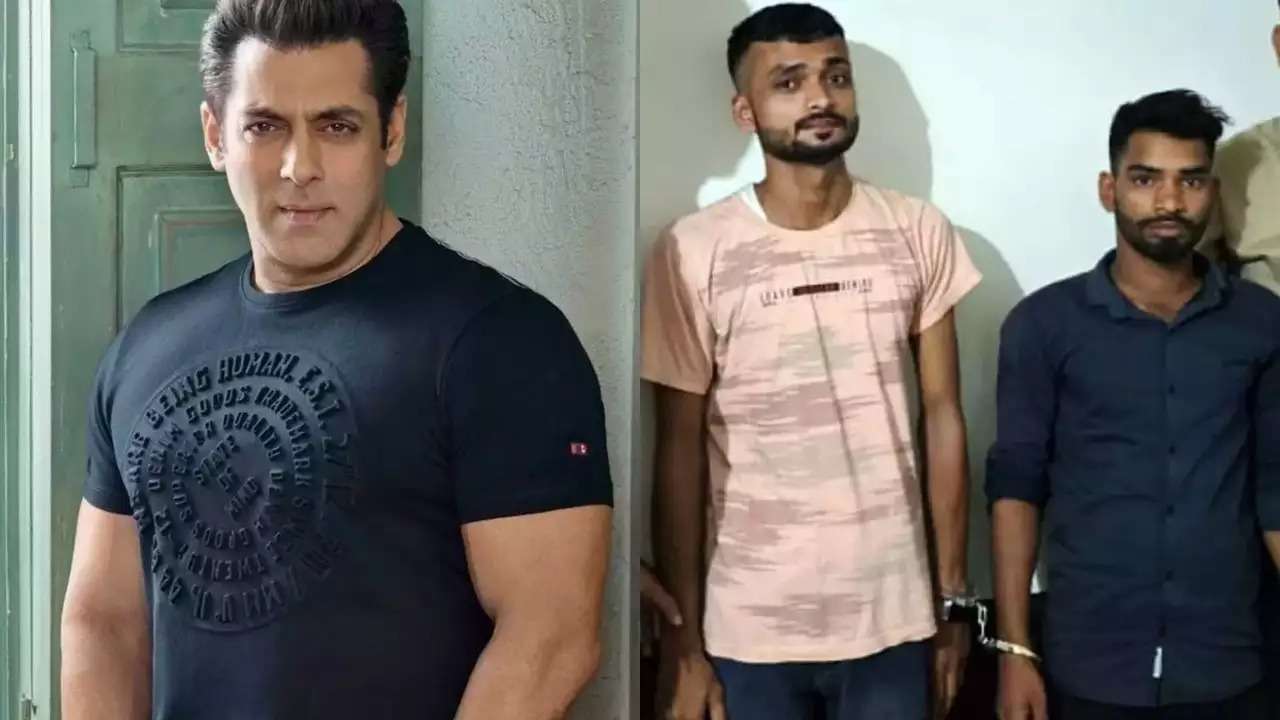
The investigation into the shocking firing incident that took place outside Salman Khan’s house on April 14 keeps bringing new updates with every passing day. In this case, Sagar Pal and Vicky Gupta, the two suspected shooters, have already been taken into custody.
The two shooters have reportedly been questioned by the National Investigation Agency (NIA), according to a new development. Every day that goes by, more information is revealed about the inquiry into the shocking firing incident that happened outside Salman Khan’s house on April 14. Sagar Pal and Vicky Gupta, the two accused shooters, are being held in custody after their first arrests.
It was recently discovered that the two shooters were questioned by the National Investigation Agency (NIA).
NIA has reportedly begun questioning Sagar Pal and Vicky Gupta, who were detained a few days ago for firing openly outside Salman Khan’s Galaxy Apartments in Mumbai, according to a recent update posted on their X (Twitter) account. NIA has interrogated shooters Vicky Gupta and Sagar Pal, arrested in the firing case, the tweet said.
According to the reports, two Punjabi residents were taken into custody by the Mumbai Crime Branch yesterday on suspicion of being involved in the recent shooting incident outside the house of Bollywood actor Salman Khan.
The two men, Sonu Subhash Chander and Anuj Thapan, provided guns to Sagar Pal and Vicky Gupta, the shooters, according to information released by the Mumbai Crime Branch. It was also reported that they had communication with the Bishnoi gang. For those who don’t know, hours after the incident, Anmol Bishnoi, the brother of gangster Lawrence Bishnoi, allegedly took credit for the firing in a Facebook post.
The shooters’ custody has been extended by Mumbai’s Esplanade Court until April 29.
Meanwhile, on the workfront Salman Khan was last seen in Tiger 3 alongside Katrina Kaif.
2024 Lok Sabha Elections
PM Modi calls for high voter turnout in second phase of Lok Sabha elections 2024, says your vote is your voice
Prime Minister Narendra Modi urges citizens to participate in record numbers during the second phase of polling for the Lok Sabha Elections 2024.
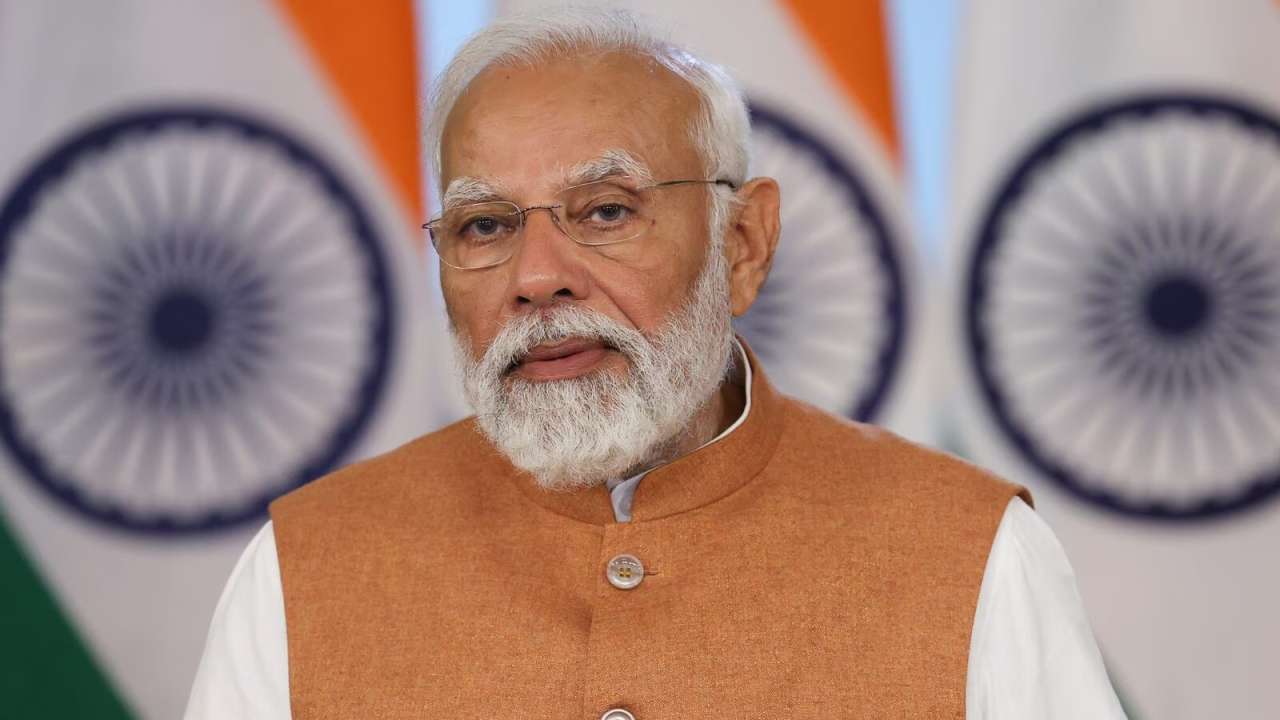
Prime Minister Narendra Modi took to social media as the second phase of voting for the Lok Sabha Elections of 2024 got underway across the country to encourage voters to cast votes in huge numbers. PM Modi emphasized in his speech the value of voting in preserving democracy and notably urged women and young people to cast votes.
Taking to social media X, formerly Twitter, PM Modi wrote, urging everyone in constituencies to participate in record numbers in today’s second phase of the Lok Sabha elections. He said our democracy is strengthened by high voter turnout. He especially urged female and youth voters to cast votes in large numbers. Your vote is your voice, he added.
It is important to remember that 88 Lok Sabha constituencies—spread among 13 states and Union Territories—are presently holding polls. Twenty seats in Kerala, fourteen in Karnataka, thirteen in Rajasthan, eight in Uttar Pradesh and Maharashtra, six in Madhya Pradesh, five in Assam and Bihar, three in Chhattisgarh and West Bengal, and one in each of Tripura, Jammu & Kashmir, and Manipur are currently up for election. Notably, the untimely death of a Bahujan Samaj Party (BSP) candidate has resulted in the Madhya Pradesh constituency of Betul being spared from voting on April 26.
Meanwhile, Chief Election Commissioner Rajiv Kumar emphasized the thorough planning that has taken place over the previous two years and reassured the public of careful security measures at every voting place. They have been preparing for the last two years, he said. At each booth, the arrangements are ready. Everything has been prepared for the voters, including fans and drinking water. Voters must turn out to cast their votes. Safety has been considered. There is zero information available anywhere regarding violence. However, there will be forces at every booth.
2024 Lok Sabha Elections
Bollywood actor Neha Sharma campaigns for her father Ajit Sharma in Bhagalpur, Bihar
The Bollywood actor posted a video on her Instagram handle which showed her journey through various districts of Bihar, including Kishanganj, Banka, Purnea and Katihar. She was dressed in a traditional salwar kameez and was seen greeting and encouraging the public to cast their votes.
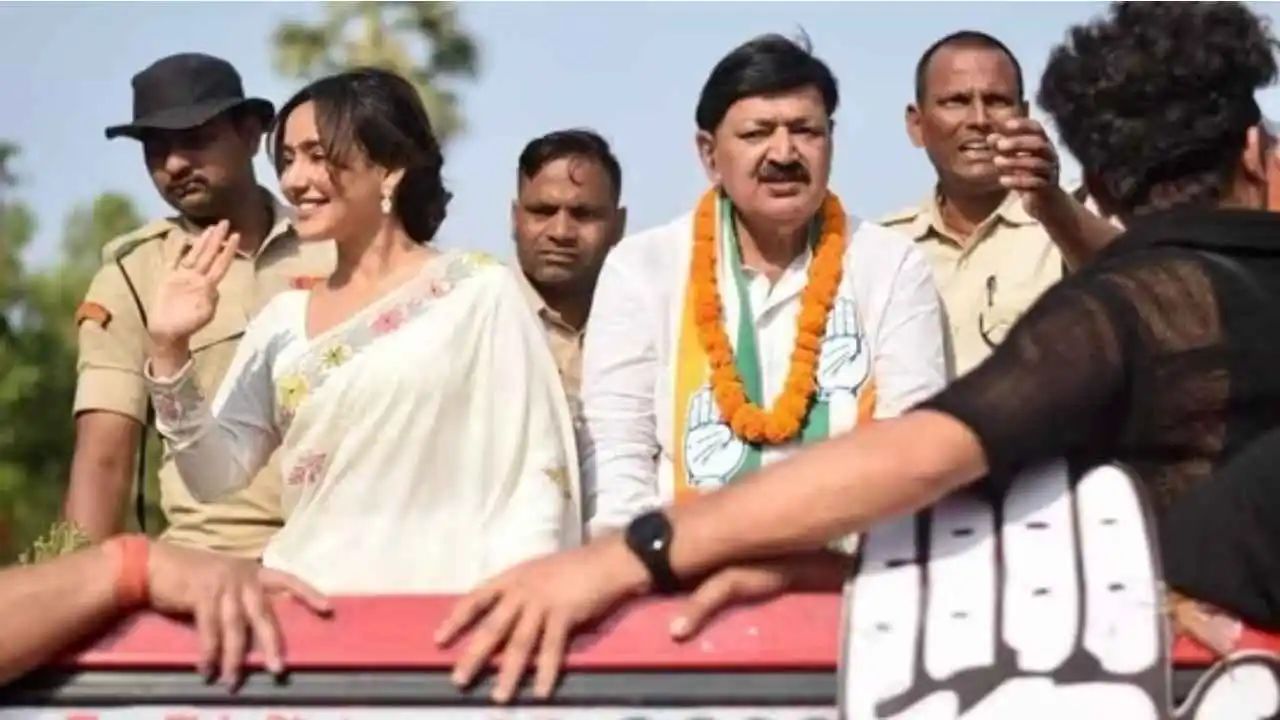
Bollywood actor Neha Sharma’s recent participation in a roadshow in Bihar has taken the internet by storm. Sharma, known for her roles in films like Tum Bin 2 and Crook, was seen supporting her father, Ajit Sharma, who is contesting from Bhagalpur Lok Sabha seat on a Congress ticket. The roadshow came amid speculations that the actor might enter politics. But, it is now clear that she was just campaigning for her father.
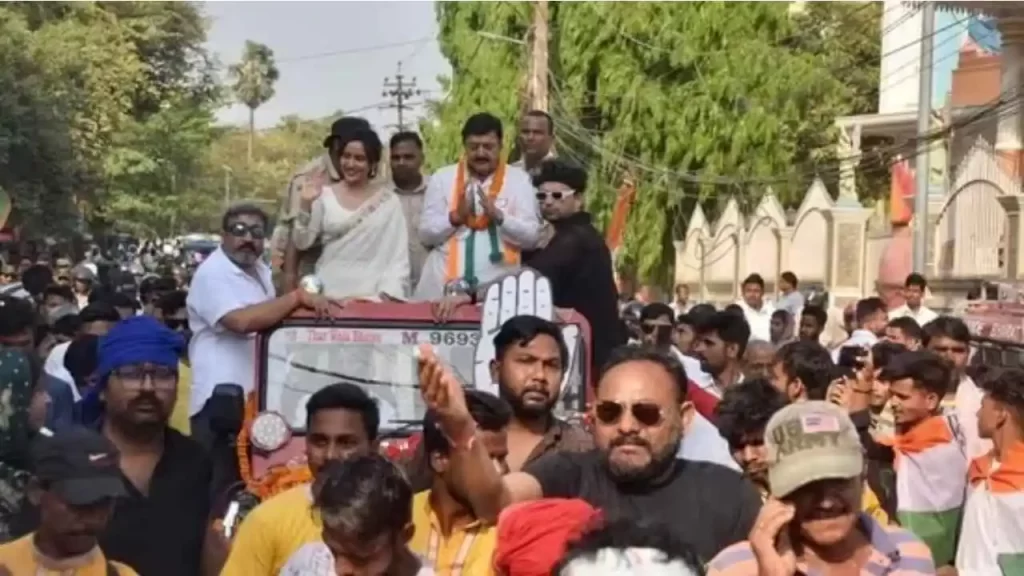
The Bollywood actor posted a video on her Instagram handle which showed her journey through various districts of Bihar, including Kishanganj, Banka, Purnea and Katihar. She was dressed in a traditional salwar kameez and was seen greeting and encouraging the public to cast their votes.
The actor received a warm reception and love from a large crowd in Pirpainti and Kahalgaon during her roadshow. She wrote on Instagram that it is said when someone gives one a place in their heart, then they live there forever. She said her heart is full of all the love and support she was receiving from the people. She thanked the people for the warm welcome she got in Pirpainti and Kahalgaon. Aapka pyar sar ankhon par.
Another video, circulating on social media showed the actor actively participating in her father’s election campaign in Bhagalpur. The election to the Bhagalpur Lok Sabha seat is set to take place in the 2nd phase on April 26. Ajit Sharma is representing the Congress and is up against JDU’s Ajay Kumar Mandal in this seat.
Earlier, there had been rumours and speculations that Neha Sharma might join politics. But many reports have clarified that she is not making her political debut yet. The Bollywood actor had been offered the opportunity to join politics by her father Ajjit Sharma but she is currently focusing on her acting career.
-

 Cricket news18 hours ago
Cricket news18 hours agoTelugu superstar Mahesh Babu meets SRH captain Pat Cummins, says it is an absolute honour
-

 Education23 hours ago
Education23 hours agoFarmer’s son Nilkrishna Gajare Nirmalkumar from Maharashtra scores 100 NTA score in IIT-JEE Mains 2024
-

 Entertainment21 hours ago
Entertainment21 hours agoAamir Khan to begin shooting in Delhi for Sitaare Zameen Par next month
-
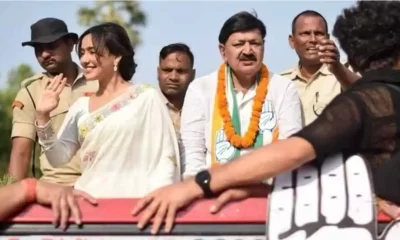
 2024 Lok Sabha Elections21 hours ago
2024 Lok Sabha Elections21 hours agoBollywood actor Neha Sharma campaigns for her father Ajit Sharma in Bhagalpur, Bihar
-
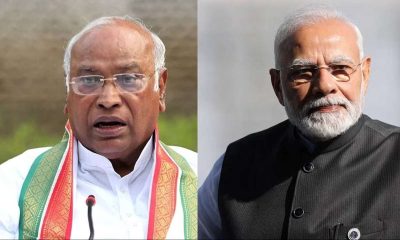
 2024 Lok Sabha Elections18 hours ago
2024 Lok Sabha Elections18 hours agoMallikarjun Kharge writes to PM Modi seeks time to explain Congress’s Nyay Patra
-

 Cricket news20 hours ago
Cricket news20 hours agoAB De Villiers criticizes RCB’s decision to let go Yuzvendra Chahal, says it was a hearbreaking moment
-
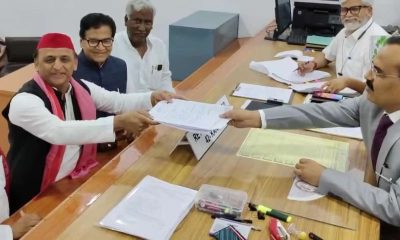
 2024 Lok Sabha Elections24 hours ago
2024 Lok Sabha Elections24 hours agoLok Sabha elections: Samajwadi Party chief Akhilesh Yadav files nomination from Kannauj
-
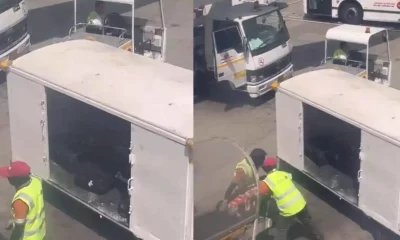
 Trending17 hours ago
Trending17 hours agoSocial media user shares video of Air India ground staff throwing expensive musical instruments, video goes viral



